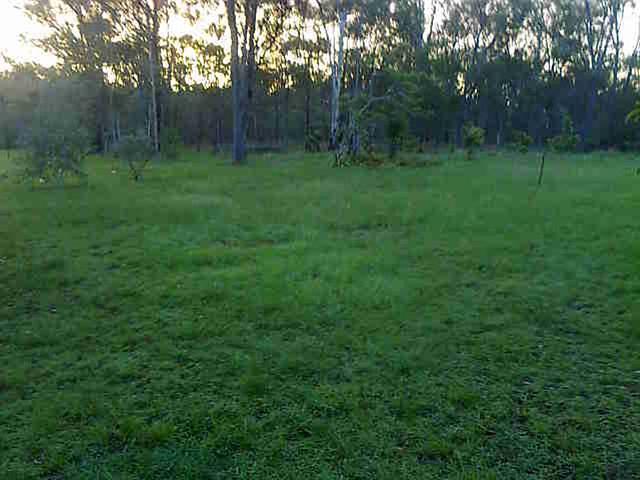Roundup - killer glyphosate
Roundup - killer glyphosate
[Another post in Rubbish in our Environment series]
We are waiting for an important EU vote (by the Standing Committee on Plants, Animals, Food and Feed -PAFF). If we (in Thailand) are not, we are missing a BIG BLIP on our radar. We should be watching more carefully. The vote is whether to allow use of a chemical weed killer - glyphosate or by its comercial name Roundup. Thai farmers and thier rural neighbours have been exposed to chemical for a long time and may have been affected by its toxicity. There are research studies that conclude "Glyphosate causes extreme disruption of the microbe's function and lifecycle. What's worse, glyphosate preferentially affects beneficial bacteria..."; WHO says glyphosate is 'probably carcinogenic to humans'; "...believed to be harmful to bees..."; and of course "Glyphosate is an herbicide. It is applied to the leaves of plants to kill both broadleaf plants and grasses."
An Internet search with "gyphosate" will list many more facts and conclusions for us to consider.
The EU (PAFF) vote will apply to EU imports. That means produces from Thailand will be allowed or banned based on residue tests for glyphosate. EU is an important export market for Thailand. Our rural economy depends very much on this vote.
I believe the vote will in the end "for more restrictive use of glyphosate" and public sentiment will be in favour of total ban of glyphosate for the sake of healthier environment. Thai farmers will be well prepared if they switched off Roundup and glyphosates from now so that 'produce of Thailand' can move freely through EU and throughout the world!
...
Europe stalls weed killer renewal, again
http://www.sciencemag.org/news/2016/05/europe-stal...
By Tania RabesandratanaMay. 20, 2016
...Glyphosate's current license expires on 30 June and its renewal has divided the European Union's member states after contradictory scientific assessments. The Standing Committee on Plants, Animals, Food and Feed (PAFF), which is made up of representatives of the 28 states, was to decide on the renewal yesterday, but the European Commission canceled the vote—which was bound to be indecisive yet again...
...France opposes the renewal whereas other countries—including Germany, the Netherlands, and Portugal—were intending to abstain, says a source close to the negotiation. “Since it was obvious that no qualified majority would have been reached, a vote was not held,” a commission spokesperson says in a statement forwarded to ScienceInsider and quoted by other news outlets...
...Indeed several recent, authoritative scientific assessments have reached conflicting conclusions. In March 2015, the United Nations's International Agency for Research on Cancer (IARC) classified glyphosate as “probably carcinogenic to humans," saying there is “limited evidence” that the weed killer causes cancer in humans but “sufficient evidence” from animal studies. Yet in November 2015, the European Food Safety Authority (EFSA) said glyphosate is unlikely to cause cancer in humans...
...Monsanto, which manufactures glyphosate under the commercial name Roundup, has slammed the delays as “not scientifically warranted.”...
...Yesterday, the commission said that if no decision is taken before the end of next month, “glyphosate will be no longer authorized in the EU and Member States will have to withdraw authorizations for all glyphosate-based products.”...
ความเห็น (3)
The good doctor นพ. วัลลภ พรเรืองวงศ์ wrote some 3 years ago:
RoundUp(ราวด์อัพ)___ทำร้ายตับเรา..... อ่านต่อได้ที่: https://www.gotoknow.org/
This Why Europe may ban the most popular weed killer in the world
http://www.sciencemag.org/news/2016/06/why-europe-...
by Erik Stokstad, Jun. 17, 2016
tells of pros and cons of Roundup (in terms of money and health) and a decision to be made on 30 June.
The decision (29 June 2016):
Controversial chemical in Roundup weedkiller escapes immediate ban
https://www.theguardian.com/business/2016/jun/29/c...
In details see http://europa.eu/rapid/press-release_MEMO-16-2012_...
Highlighted:
What is the final decision?
The Commission adopted the extension of the current approval of glyphosate for a limited period until the European Chemical Agency (ECHA) has concluded its review - since Member States failed to take responsibility (no qualified majority was reached at either the Standing Committee or the Appeal Committee).
In parallel to the extension of the approval, the Commission has already presented to Member States a series of recommendations on the use of glyphosate. Discussions with the Member States have started at expert level, and the Commission will work to have them adopted as soon as possible. The decision will contain three clear recommendations:
1) ban a co-formulant called POE-tallowamine from glyphosate based products;
2) minimise the use of the substance in public parks, public playgrounds and gardens;
3) minimise the pre-harvest use of glyphosate.
It must be noted that it is primarily the responsibility of Member States to decide upon and enforce such measures
...
What could be done in particular as regards the co-formulants?
Co-formulants are used to produce pesticides, but are neither active substances, safeners, nor synergists. They can already be banned or restricted for use at national level.
POE-tallowamine, one of the co-formulants used for glyphosate-based products, has raised concerns regarding its toxicity. The Commission has proposed to Member States to ban POE-tallowamine as a co-formulant in glyphosate-based products and is currently addressing this issue with them as discussions have started at expert level.
It must also be noted that an EU experts' group has already been put together by the Commission with a view to set up the criteria in order to identify an EU list of banned co-formulants.
For more information
Approval and use of active substances and pesticides in the EU see: http://ec.europa.eu/food/plant/pesticides/approval...
EFSA's website: http://www.efsa.europa.eu/interactive_pages/pestic...
สรูป
ยังไม่แบนทันที่ แต่กำหนดข้อแม้ในการผลิต และการใช้ จนกว่าจะได้ผลการวิเคราะห์จาก The European Chemicals Agency (ECHA).
